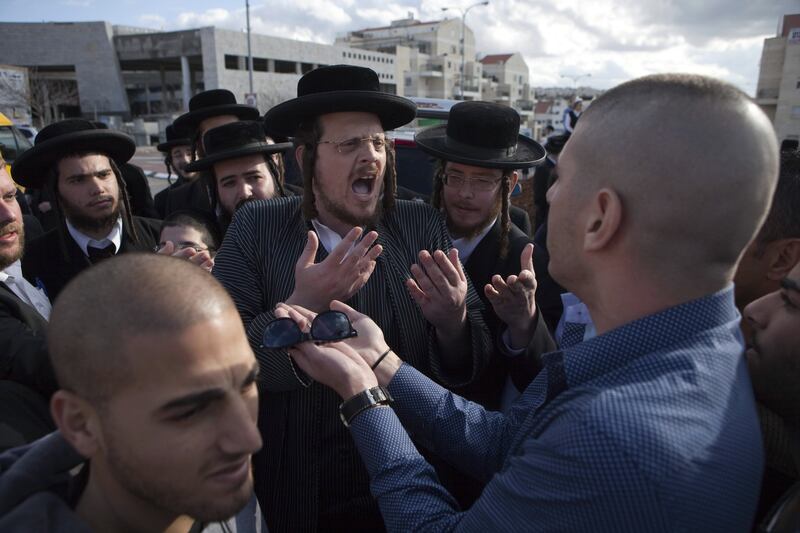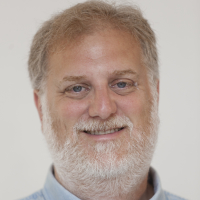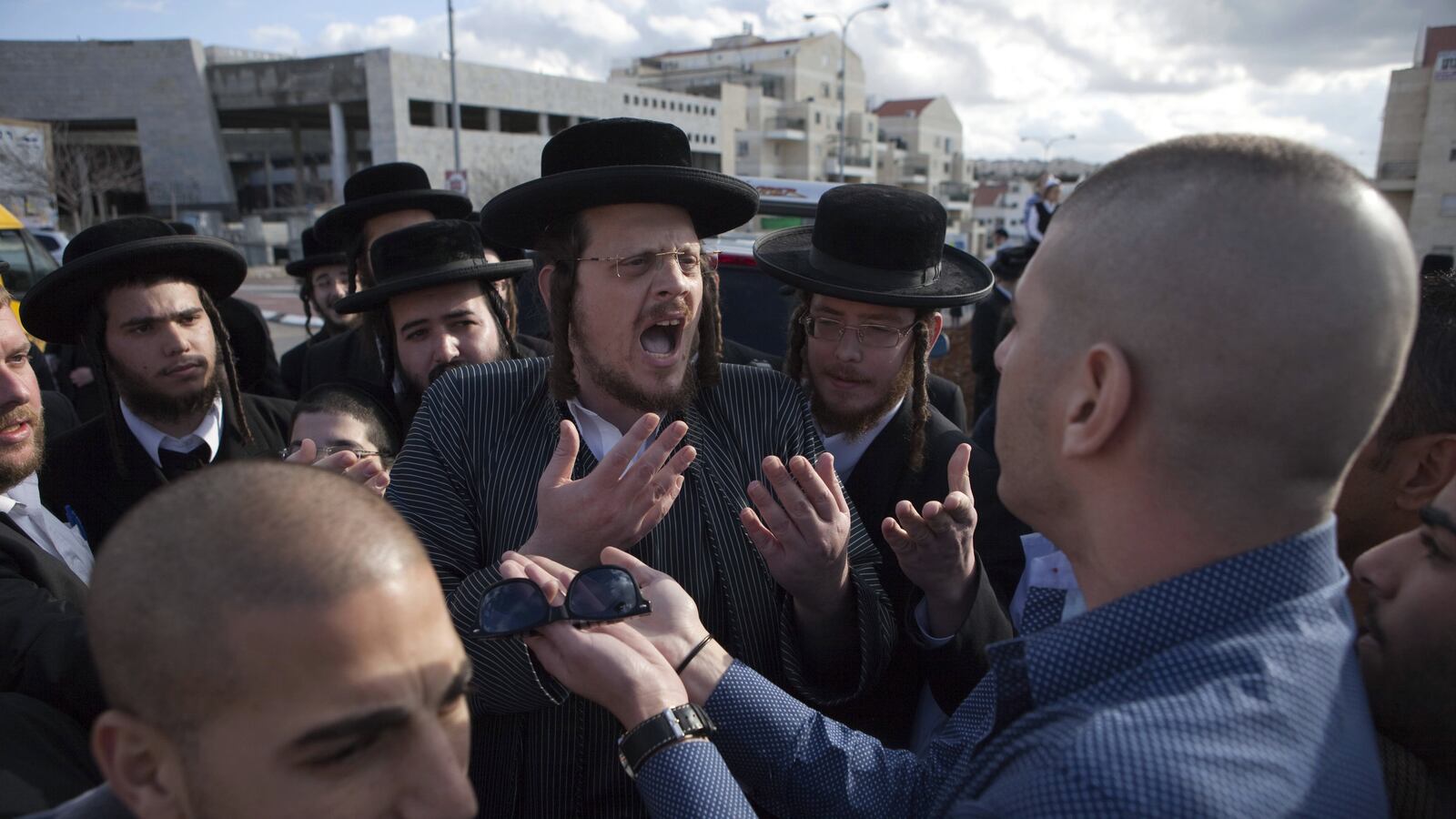The new political reality created last week by the new, Mofanyahu mega-coalition has opened the possibility of real debate on the issue that triggered it all: whether and how to induct the ultra-Orthodox Haredim into the military or national service, and from there into the workforce. Many secular and Religious Zionists have dreamed of a coalition that could survive without Haredi votes. Now they finally have one.
Haredi leaders say that any change means war, and threaten to flood the jails with refuseniks.. Some certainly would go that route, but others would be glad to climb down into the IDF and the labor force if they thought they could. What's needed is practical thinking, coupled with honest debate about values and ideology even if only to demarcate the different civic spaces where people can either work together or agree to disagree, and sadly it doesn't seem like either side, religious or secular, is quite up to it. The values and ideals that, fifty years ago, set this kulturkampf into motion have, by now, eroded on both sides such that the contestants can no longer debate them straightforwardly and philosophically. What's left are smoldering resentments, by secular and religious Zionists at Haredim for not serving, and by Haredi ideologues at the others for not yielding what they see as their just historic right of way.

Things have changed mightily since October 1952 when David Ben-Gurion held his legendary dialogue with Avraham Yehoshua Karelitz, known by his pen name Hazon Ish, the scholar and saint who founded contemporary Israeli Ultra-Orthodoxy. The debate was over whether ultra-Orthodox girls would do national service, a subject that allowed them to discuss something deeper: the shape of Jewish history, or more precisely, who was bearing its burden and destiny. But the two were, with all their differences, products of the same, intense, intellectual and cultural ferment of Eastern Europe, propounding revolutionary programs for Jewish life: Zionist socialism and religious radicalism.
"We may be few," Karelitz told Ben-Gurion, "but if we practice self-sacrifice we'll be strong, and no power will overcome us." Ben-Gurion felt exactly the same.
Today, neither secular Israelis nor the Haredim are as richly ideological as they once were.
As I've written before, Labor Zionism was more than a political party; it was an ethos, a symbolic and civic center—statist, collectivist, secularist, with its own robust conception of new Jewish identity.That revolution's heirs, alienated by secular education from their parents' cultural resources and facing new challenges, no longer have the language with which to assert their own values and convey to the Haredim that they are engaged in something larger than power politics..Meanwhile the continuing conflict and occupation have landed them in mind-bending complexities that require some new compass.
As for the Haredim, they are, for all their dedication, and rhetorical fury, ,themselves deeply at sea. To begin with, their willful self-exclusion not only from secularism, but from other forms of Orthodoxy has deprived them of the intellectual tools for dealing with modernity developed by a host of thinkers in the last 200 years (Samson Hirsch, Abaraham Isaac Kook and Joseph Soloveitchik, to name just a few). Now the changes within secular Israel have loosened their bearings even more.
Writing last year in the bimonthly Eretz Acheret, Aharon Rose, a brilliant secular intellectual raised as a Belzer Hasid, observed that the latter-day inheritors of Ben-Gurion and Karelitz would today have nothing to argue about: "the value-shift in Western culture in general and Israeli culture in particular, from social ideology and hierarchies of value to an emphasis on individualistic-authentic freedom, has not only drained the ideological conflict between Haredim and secular of significance, but grievously wounded Haredi identity that sees itself as a counterculture."
He's not kidding. In the past years, when I was active in fighting the Haredi demand for gender-segregation in public transportation and elsewhere, nothing was more dispiriting than elite secular journalists, academics, who couldn’t understand what my problem was and why I couldn't just live and let live. "You actually ride city buses?" I was sometimes asked.
That segregation and its accompanying violence were themselves a sign of Haredi uncertainty, a reaction not only to Israeli culture's increasingly uninhibited sexuality, but equally to the impressive strides that Haredi women, increasingly educated, and participating in the workforce at a higher rate than Israeli women overall.
But there is a new Haredi middle class, driven in part by the emigration of American Haredim and, alongside the thought-police, Haredi Internet forums offer freewheeling commentary on everything from gossip to theology.
Haredi culture is on the move, in multiple directions. It is more open and more dogmatic simultaneously and defies easy description. But while there is internal dissent, and often rich discussion on the Internet, it has no open, public channels for discussion and debate, just when it needs them, not least because the internal price of dissent in what is still a very closed subculture is so severe. Having lost the secular sparring partner that gave it self-definition in a battle for the meaning of Judaism, it's left with little but its belief in its own society, and its anger.
Some valiant souls are trying to think their way through this. For instance, Bezalel Cohen, a Haredi intellectual a leading researcher and activist on the integration of Haredim into the workforce, has suggested different forms of service for the key Haredi populations – the hard-core "Lithuanian" yeshiva students, the less-scholastic but more puritanical Hasidim, and the Sephardi Haredim who are less self-segregating to begin with. Rabbi Haim Amsalem, a renegade Knesset Member from Shas who has founded his own (likely doomed) party, forthrightly advocates that the Haredim follow the lead of Religious Zionism and create their own version of the Yeshivot Hesder, whose students alternate between stints of study and military service.
Indeed, the Hesder Yeshivot are, in the growing public debate, the dog that doesn't bark. To the extent that Haredi leadership seems willing to toy with the thought of military service at all, it is only for those deemed unfit for intensive Talmud study—unlike the Religious Zionists for whom military service and religious leadership go hand in hand. Secular journalists and politicians don't raise them as an option for the Haredim, perhaps because many are in the settlements, and perhaps because they too have come to buy into the Haredi idea that Judaism and Israeli nationhood don't go together.
The current status quo has endured thanks to an unholy alliance of Haredi and secular politicians, who scratch each other's backs, and get each off the hook from having critically to engage their own Jewishness. Haredi politicians like having friends in the secular political class, who enjoy looking tolerant vis-à-vis Haredi colleagues, and who no longer quite believe in their own values.
Some knowledgeable observers think that once the dust settles, nothing will have changed, and they may be right. But is it too much to hope that the coming months might see something more?
The social protests of last summer set something new afoot. Alongside the sense of unfairness and resentment, of which the Haredim were one, but not the only, target, one could hear in some corners renewed discussion of the social and ethical meaning of Israel, and Zionism. It would be a pity if it all were to find no expression greater than battling the Haredim, necessary as that struggle might be. But finding a compelling language of ethics, justice and solidarity for that struggle, for that decision to shift the terms of the Haredi social contract before it undoes Israeli civil society for good, is necessary, for that, and for the other struggles ahead.






